Physics 101 states that an object in motion stays in motion and our horse’s joints are no exception. Joint health is one of the most important priorities for any horse to avoid lameness and arthritis.
DO keep your horse active
Keeping our horses in work even if they’re not competitive is one of the best ways to maintain their joints and keep them feeling young. Unfit horses have weak muscles and tendons which can cause joints to become unstable leading to degeneration causing lameness and/or arthritis. Movement as simple as daily in hand walks with some ground poles or hill work can help your horse maintain a fitness to support their joints and it also gets the joint fluid moving keeping them lubricated. Of course, short periods of rest are perfectly acceptable, but regular fitness will keep your horse’s body (and mind) in shape. Regular fitness will also make the transition to more work easier and less stressful.
DON’T neglect their hooves
Hoof health is vital for the overall health of your horse. A bad hoof balance can lead to bad joint alignment leading to discomfort and pain in the long run. Keeping your horse’s hooves trimmed regularly and well balanced will help prevent early onset arthritis and joint discomfort. Keeping your farrier scheduled regularly and, if you participate in a discipline, having a farrier that is well versed in that field can be the difference between a well performing athlete and a horse that needs an early retirement.
DO keep your horse at a healthy weight
Extra weight means extra pressure on joints. The longer a horse is overweight, the more joint damage there may be, which is why it’s beneficial to always keep your horse at a healthy weight. If you have trouble keeping your horse at a healthy weight, consult your veterinarian to establish a diet and exercise plan to get them back to an ideal body condition.
DON’T over exercise
Just as inactivity can contribute to joint disease, so too can over exertion. Occasional days of rest are required for your horse to manage the inflammatory process that is a natural consequence of activity. Continual work doesn’t allow the body to recover and contributes to arthritis. Days off should include turnout in a large space allowing them to move their bodies as needed and minimizing stiffness that may be caused by stall rest after working.
